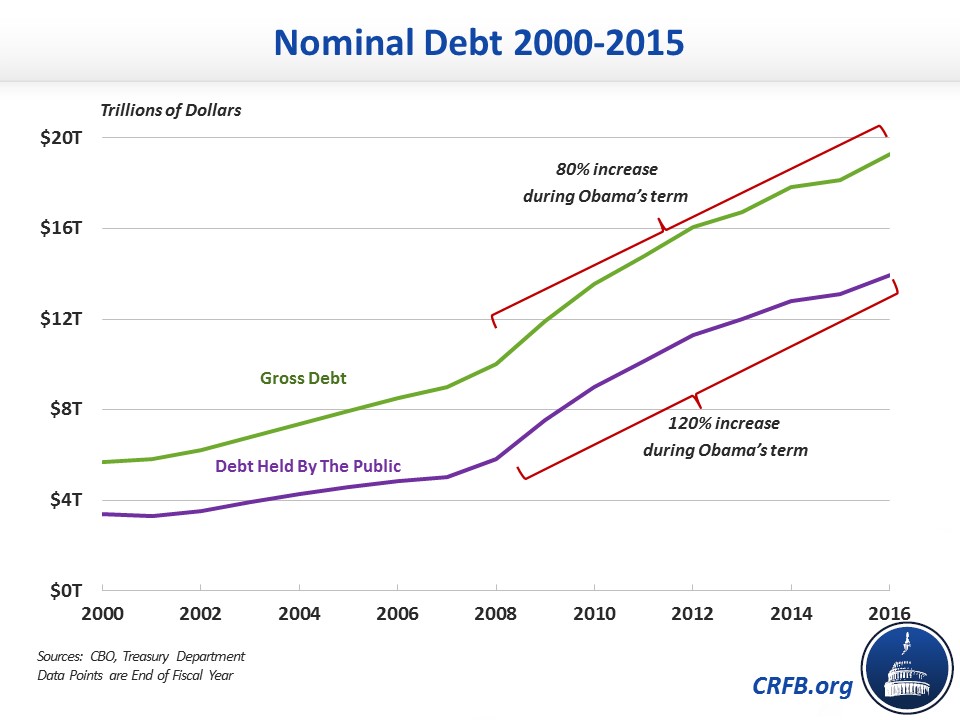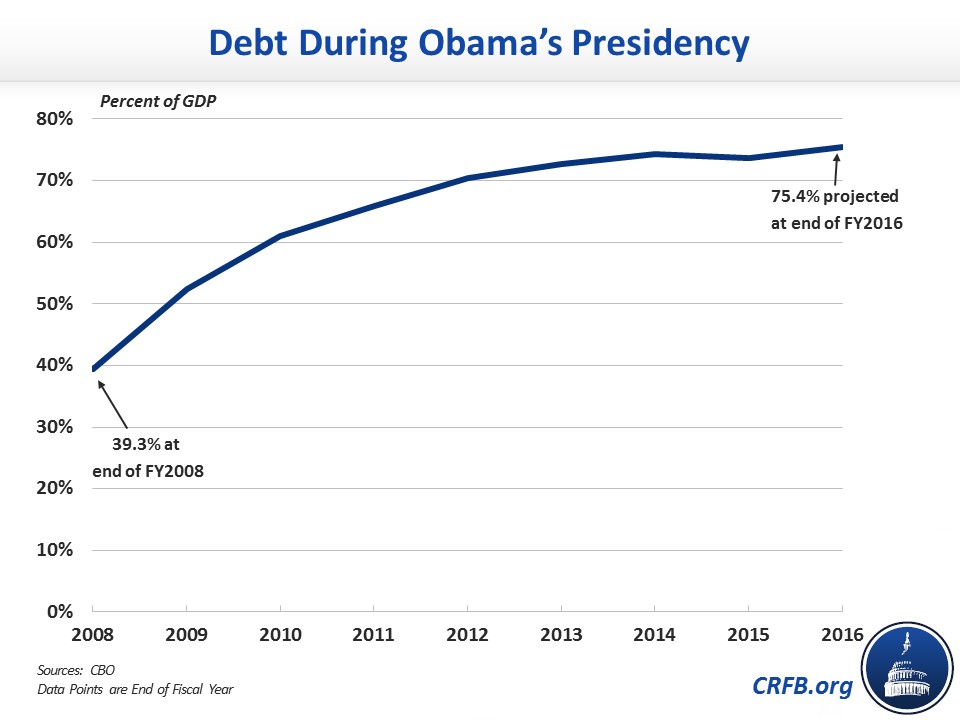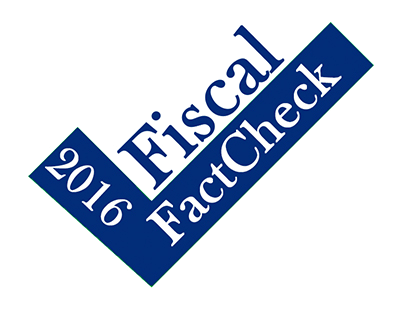Has President Obama Doubled the National Debt?
While accepting the Republican nomination for president, Donald Trump said, "President Obama has almost doubled our national debt to more than $19 trillion, and growing."
While the statistic is true (the debt has either nearly, fully, or more than doubled since Obama's first inauguration, depending on the measure of debt), it is a vast overstatement to place the entire blame on Obama; rather, it's complicated. Some of the debt increase was already projected to occur before anything was signed by Obama. Moreover, spending and tax decisions are primarily the responsibility of Congress – at least officially – and often end up being the result of actions (or inactions) agreed upon by both Congress and the president.
By Most Measures, Debt Roughly Doubled Under Obama
From a numerical standpoint, Trump is correct that the debt has almost doubled in dollar terms since Obama's first inauguration. Using the gross debt figure Trump cites, debt grew from $10.6 trillion on Inauguration Day 2009 to $19.4 trillion as of July 21. Using the more economically meaningful figure of debt held by the public, which excludes money that the government owes to itself, debt more than doubled from $6.3 trillion to $14 trillion.

However, measuring debt in dollars fails to account for inflation or the fact that the economy and population are larger in 2016 than they were in 2008. Measured as a share of the economy, the debt nearly doubled from 39.4 percent at the end of Fiscal Year (FY) 2008 (four months before Obama took office) to 75.4 percent projected at the end of FY 2016 (two months from now). Gross debt increased by less than half from 70.2 percent at the end of FY 2008 to 104.2 percent projected at the end of FY 2016.

It's Unfair to Attribute Debt Increase Entirely to Obama
While by many measures debt has doubled under Obama’s presidency, it is hard to argue this is entirely of Obama’s doing.
First of all, much of the debt increase was the result of laws and economic conditions in place before Obama took office rather than laws that passed under his presidency. The Congressional Budget Office’s first current law projections of the Obama presidency already projected debt held by the public would rise from $5.8 trillion to $9.1 trillion when Obama left office – and these projections didn’t incorporate the entire depth of the Great Recession, which reduced revenue and therefore further increased debt.
Importantly, though, President Obama did sign many laws worsening this debt situation. Among the most significant are the 2009 stimulus, extending the 2001/2003 tax cuts temporarily in 2010 and making most of them permanent in 2012, the 2015 permanent "doc fix," and the tax extenders/omnibus bill at the end of 2015. President Obama also signed several pieces of legislation to reduce projected debt, most significantly the Budget Control Act. But importantly, these laws were written not by the president but by Congress.
It is Congress that passes tax and spending legislation. There is little the president can do to impact the debt, positively or negatively, without a bill passed by Congress. Conversly there is little Congress can do without the president's signature or a veto-proof supermajority. Further, during most of Obama's term to date, control of Congress was split between a Democratic Senate and a Republican House. Both branches share blame, both for legislation that increased the debt and for failing to enact legislation that would curb the debt growth that was already projected to occur from the growth of entitlement programs and insufficient revenues.
***
By a few metrics, debt has doubled during the Obama presidency. The blame though is not only on him because some of the debt increase over the past eight years was already expected to occur, and Congress had to approve bills that increased the debt. Interestingly, debt held by the public would double again by 2024 under Trump's proposed plans – so while he is right about what's happened under President Obama's watch, his plan will make the problem worse.


